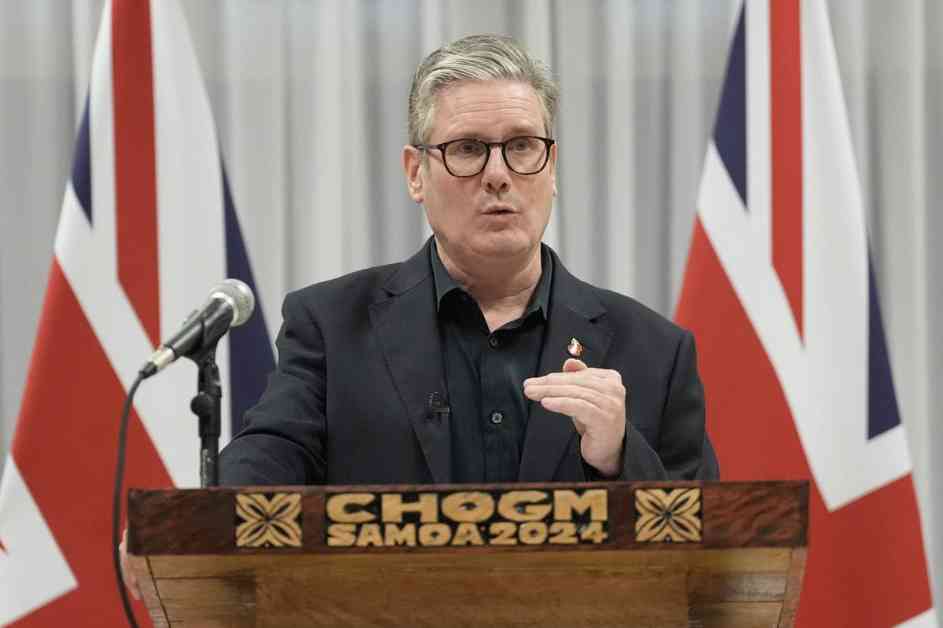Commonwealth leaders have gathered to discuss the topic of reparations for the slave trade, despite the UK government’s reluctance to engage in such conversations. Prime Minister Keir Starmer arrived at the summit in Samoa where the issue of reparations became a point of contention. While the UK government has made it clear that they will not offer reparations or an apology for their involvement in slavery, the Commonwealth leaders agreed that it is time to have a meaningful and respectful discussion on this important issue.
During a press conference at the close of the summit, Sir Keir reiterated his stance on slavery being abhorrent but maintained that the UK’s position on paying for its historical role is clear. The final communique signed by 56 Commonwealth leaders highlighted the need for a truthful and respectful conversation towards creating a common future based on equity.
Although the prime minister emphasized that discussions at the summit focused on climate resilience as the top priority, the inclusion of language on reparations in the joint statement indicates a shift towards addressing the historical injustices of the trans-Atlantic slave trade. Sir Keir Starmer defended the inclusion of this language, stating that the theme of resilience and climate was chosen by the prime minister, highlighting the importance of addressing past wrongs.
The document signed by Commonwealth leaders acknowledged the calls for reparatory justice with regards to the enslavement of Africans and the enduring effects of colonialism and dispossession. The leaders agreed to continue actively engaging in inclusive conversations addressing these historical harms, with a focus on the disproportionate impact on women and girls.
While the UK government has been reluctant to engage in discussions about reparations, the decision by Commonwealth leaders to prioritize this issue signals a significant step towards acknowledging the legacy of slavery and working towards a more equitable future. The importance of having open and respectful conversations about the impact of slavery cannot be understated, and the commitment by Commonwealth leaders to address these historical injustices is a positive development in the ongoing fight for justice and reconciliation.












